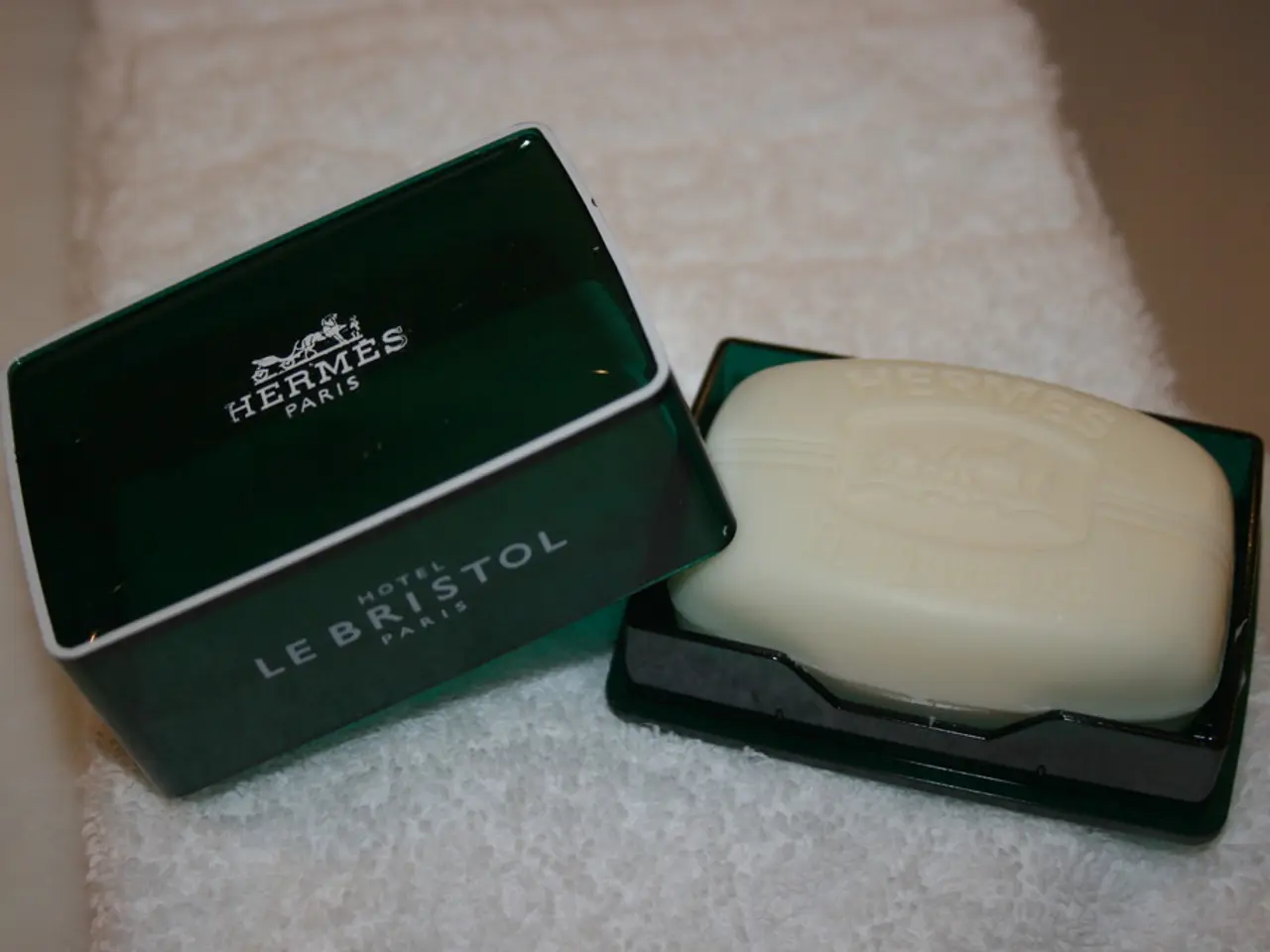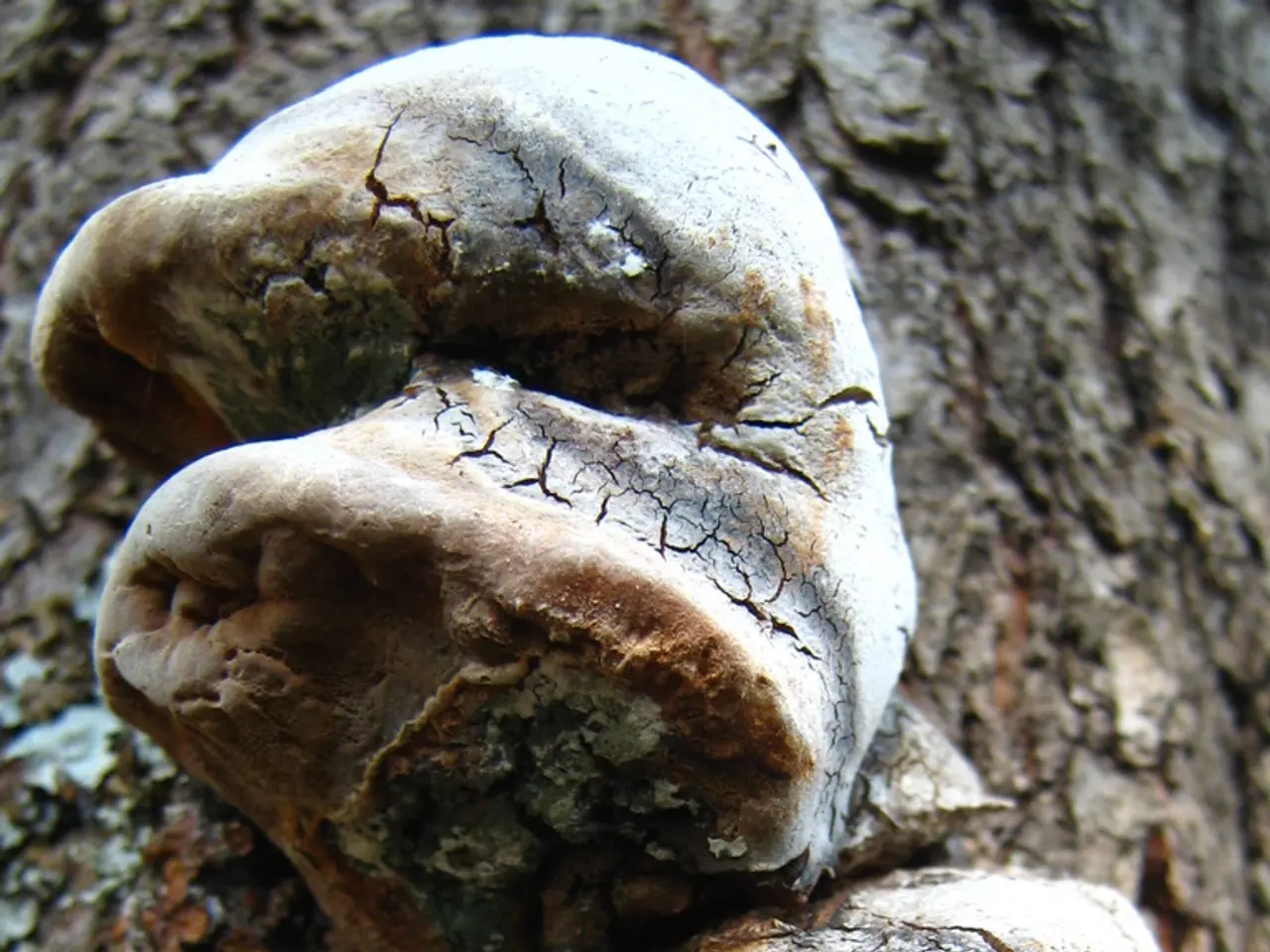Methods for Vaginal Cleaning: Ensuring Safety and Avoiding Potential Risks
In a bid to promote good hygiene and prevent potential health issues, it is essential to understand the difference between cleaning the vulva and the vagina.
The vulva, the external portion of the female genitals, requires regular cleaning for good hygiene. To safely clean the vulva, start by using warm water and a gentle, vulva-safe soap that is free from harsh chemicals, fragrances, and dyes. Apply a small amount of this mild soap to your hand or a washcloth and wash only the outer labia (the outer lips). There is no need to wash inside the vaginal opening or the inner labia. After washing, rinse thoroughly with warm water to remove all soap residue and gently pat dry with a soft towel, avoiding rubbing to prevent irritation.
For everyday hygiene, washing the vulva once a day with water or mild soap is sufficient. Always clean from front to back to avoid transferring bacteria from the anus to the vagina. Wearing breathable cotton underwear and avoiding tight clothing can also help maintain a healthy environment by reducing moisture and irritation.
Contrary to popular belief, the vagina, an internal organ, does not require cleaning. It is self-cleaning and does not require internal washing or douching. Introducing soaps, scented products, douches, or harsh chemicals inside the vagina can disrupt its natural pH balance, potentially leading to irritation, infections, or bacterial vaginosis. Therefore, avoid douching, scented washes, strong soaps, and scrubbing inside the vaginal canal.
During menstruation, it is recommended to maintain vulva hygiene by gently washing the vulva with warm water or mild soap and changing sanitary products regularly, but never clean inside the vagina.
It is crucial to note that using douches, feminine deodorant sprays, perfumes, detergent soaps, and soaps containing perfume can increase the risk of infections, pain, and irritation. It is not necessary to use soaps that are specifically labeled as being for the genitals. Frequent cleaning will not make an odour caused by an infection go away and may even make the infection worse. A healthy vagina naturally has a slight odour.
If a person is experiencing unusual discharge or an unpleasant vaginal odour, they should see a doctor. Attempts to clean the vagina with douches or similar products may cause inflammation and increase the risk of infections and unpleasant odours. Harsh cleaning products can irritate the vulva.
If a person has BV (bacterial vaginosis), they are likely to notice symptoms such as a fishy odour, itching, pain when urinating, and pain during sex. The symptoms of a vaginal yeast infection, or thrush, may include itching, white or yellow discharge, burning, discharge with a chunky texture, white coating on the lining of the vulva, and pain during intercourse. These signs are among the first signs of an infection, which will require treatment.
Research consistently finds that washing the vagina increases the risk of a wide range of health problems, including preterm labor, pelvic inflammatory disease, ectopic pregnancy, low birth weight, chorioamnionitis, and other adverse effects on pregnancy outcomes. Vaginal steaming is not effective and can cause severe burns and irritation to the vagina or vulva. A sudden change in vaginal odour, especially a strong fishy odour, can be a sign of BV and requires medical attention.
In summary, maintaining good vulva and vaginal hygiene is essential for overall health and wellbeing. Regularly clean the vulva with warm water and a gentle, fragrance-free, vulva-safe soap, and avoid douching or using harsh soaps or scented products inside the vagina. By adhering to these guidelines, you can ensure the vulva is clean without compromising the vaginal ecosystem, helping to maintain comfort and prevent infections.
- Understanding the difference between cleaning the vulva and the vagina is crucial for promoting good hygiene and preventing potential health issues.
- The vulva, an external part of the female genitals, needs regular cleaning for good hygiene, using warm water and a gentle, fragrance-free, vulva-safe soap.
- Regardless of having bipolar disorder (bipolar) or type 2 diabetes (diabetes), or dealing with conditions like vaginal health issues, psoriatic arthritis (psoriatic), or issues related to sexual health (sexual-health) or women's health (womens-health), it is essential to follow proper vulva hygiene practices.
- Upon noticing unusual discharge or an unpleasant vaginal odor, seeking medical attention is necessary to detect potential infections like bacterial vaginosis (BV) or a vaginal yeast infection (thrush).
- Using products like douches, feminine deodorant sprays, perfumes, detergent soaps, or soaps containing perfume may increase the risk of infections, pain, and irritation in the vaginal region.
- A predictive scientific approach to health-and-wellness underlines the importance of maintaining a healthy vaginal environment by avoiding internal cleaning or douching.
- In the context of HIV (HIV) prevention, PrEP (prep) is a crucial medication that acts before a person becomes infected to prevent the virus from taking hold in the body, and maintaining good vaginal health through proper hygiene practices can potentially decrease the risk of transmission.
- Properly understanding the science behind vaginal health is crucial for every woman, as it can help predict potential health issues, mitigate risks, and ensure a better quality of life, particularly in relation to reproductive health and overall health-and-wellness.




